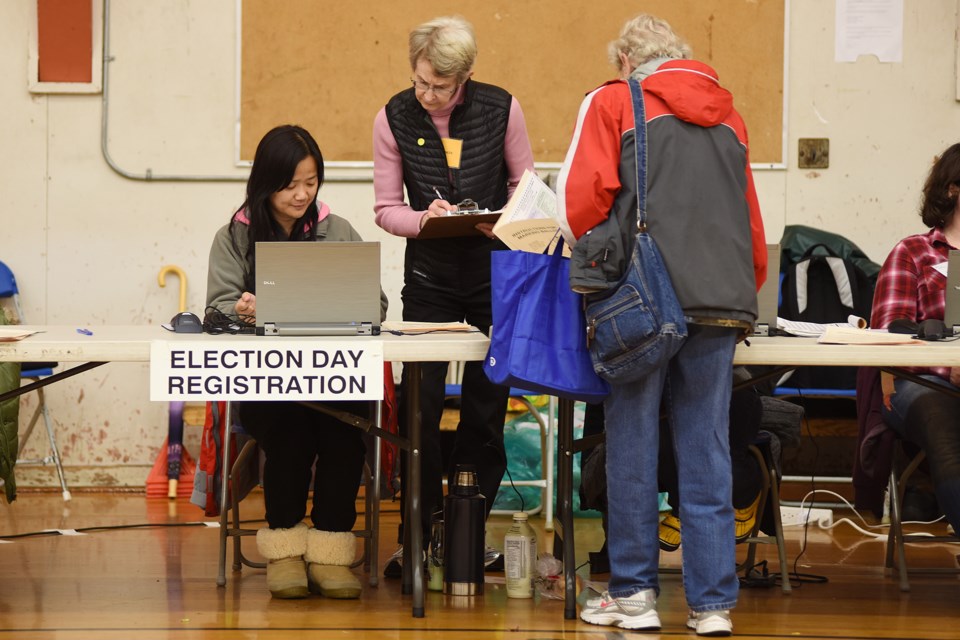Well, here we go — civic election campaign time.
Are you excited?
Maybe you’re angry, instead.
Or, perhaps, like many eligible voters, you don’t care enough about your city to bother casting a ballot; voter turnout reached 50 per cent in the 2002 election and hasn’t surpassed that since.
Which is sad.
But I’m not here to preach. I’m back typing after a break in August and wanted to bring you up to speed on what to expect over the next seven weeks.
You may have read or heard about some of the candidates campaigning for mayor, council, school board and park board. There’s a ton of them.
This week, the city officially launched the call for nominations. Candidates have until Sept. 14 to fill out nomination packages. The city will then post a full list of names for the 27 positions.
Voters can begin making their choices Oct. 10 to 17, from 8 a.m. to 8 p.m., in advance of election day, Oct. 20. Locations for advance polls can be viewed on the city’s website.
The ballot might throw you off when you first see it because the names will be placed in random order. The thinking behind a randomized ballot is that some voters tend to vote in an A-B-C manner.
Evidence from the 2014 council race shows Affleck, Ball, Carr, Deal and De Genova were elected. Compelling results, although the Greens’ Judy Zaichkowsky did win a school board seat in the 2017 byelection.
Anyway, shuffling names, for example, could conceivably give Vision Â鶹´«Ã½Ó³»council candidate Wei Qia Zhang a better chance of getting elected.
Many candidates running for mayor will get their first real test on the campaign trail at a Sept. 17 mayoral debate. I happen to know something about this event because I’ll be one of six panelists asking questions.
The Courier, Business in Â鶹´«Ã½Ó³»and Â鶹´«Ã½Ó³» are hosting the debate at SFU Harbour Centre in the Fletcher Canada Challenge theatre between 7 and 9 p.m.
All seats are already accounted for, but the event will be live-streamed on the three websites and Facebook pages of each publication.
No doubt, we’ll hear a lot about housing and what candidates plan to do to bring some affordability back to Vancouver, if that’s even a possibility in today’s lopsided market.
Whatever candidates have to say during their campaigns, they will not have much time to do it. New rules have moved up the election date by a month.
Yes, some keeners began campaigning weeks and months ago, but voters don’t tend to get stoked/angry/interested about a civic election until after Labour Day.
Also new for this election is a ban on union and corporate donations, and a limit on the amount an individual can donate to a party or candidate. It’s $1,200.
Which means no more multi-million dollar campaigns funded by developers and unions. Candidates, however, can still spend a considerable amount of money. Â鶹´«Ã½Ó³»mayoral candidates, for example, can burn through $210,174.60 during the campaign.
Those elected will serve a four-year term. That’s a long time and comes with great responsibility in a city known for its myriad crises — from housing to the opioid crisis to people living with mental illness.
Affordable and available childcare is another issue for many residents in this city, especially those saddled with high rents/mortgages whose salary is far below the $83,000 per year of a city councillor.
The election is Oct. 20.
My prediction: Someone other than Gregor Robertson will be elected mayor, and I will write about the winner.
@Howellings



